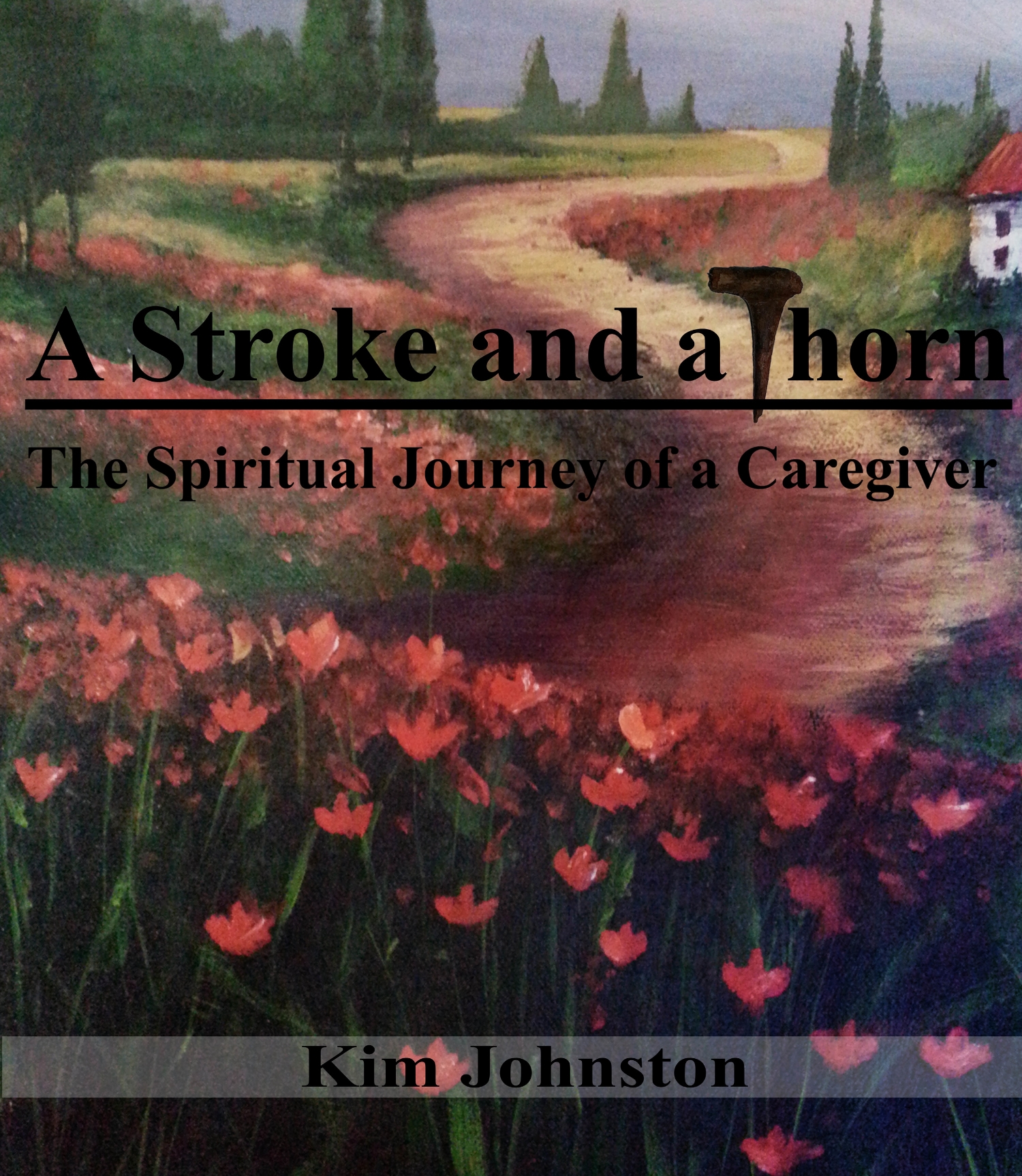Parkinson's Disease and Stroke
Five years into this post-stroke life and I'm just now learning about Parkinson's disease. It's what Michael J. Fox was diagnosed with back in the early nineties. His face is still recognizable in guest-starring, Emmy-nominated roles. I watched him just a few weeks ago on the series finale of The Good Wife. However, it never occurred to me that his condition could explain some of John's behavior until I started searching for the reason behind his painstakingly, slow movements.
Anything that interferes with his routine throws him off balance, so I stand by patiently while he rocks himself forward in his wheelchair, then plants his feet so I can help him stand. It can be maddening at times, especially when I'm in a hurry. After five years he hasn't improved the technique, and he won't. It seems to be getting worse. How can that be?
Parkinson's disease (PD) is a progressive neurodegenerative disorder, characterized by the loss of neurons that control motor behavior. A cardinal symptom of the disease is bradykinesia, or slowness of movement. Other characteristics that appear are rigidity, resting tremor, gait disturbances, and postural instability.
What? For the last five years I have been blaming myself for John's lack of progress. If only I had started earlier to care for him full-time, or practiced more at home with therapy exercises, or been more patient he would be further along with his recovery. Reading through the list of symptoms on the Parkinson's Disease Foundation website convinced me that I had found the cause for John's latency, and most importantly his apathy.
Parkinson's progressive symptoms include:
Walking Difficulty
Tremors
Bradykinesia
Depression
Motor Skill Loss
Voice and Speech Differences
Memory Loss
Skin Disorders
Facial Mask
Stooped Posture
Stiffness in Limbs
Apathy
I look back to the time before the stroke when I first noticed his shuffling walk. I blamed it on age and attitude. I assumed retirement meant he didn't need to be in a hurry to get anywhere. Could that have been a sign of his impending stroke? There is no explanation for what causes PD. Some experts believe it's linked to an environmental factor or possibly a mini stroke that destroys dopaminergic neurons, the catecholaminergic neurotransmitters found throughout the central nervous system.
I wanted to sob. Why did it take five years for me to see this? When did I start to notice the tremor in his hand? It wasn't always there. Was it? It made John angry when I brought up the subject during his latest check-up. Why do I have to know? Why do I keep looking for answers and asking for referrals from his PCP? Nothing is going to change for him now, but I can change. I can be more patient with him. I can look toward our future and plan for the type of care he will need.
John tried to pick a fight with me by sulking, then pounding his fist on the table. I ignored him then set the appointment when the neurologist's office called with an opening. He was reluctant to go, but we arrived early anyway to fill out the new patient forms, then we waited. I took him to the restroom to empty his urine drainage bag, and then we waited. Another patient was called back ahead of John so he waved his hand angrily at the receptionist behind the glass door. She explained to him there were other doctors in the office and he was still next in line to see Dr. Herron. We waited. The nurse came out to bring us back to the exam room where she took his blood pressure, and then we waited. We had waited beyond a reasonable person's tolerance and with John it was becoming unbearable. I knew I couldn't sit there any longer then pleasantly explain John's intimate medical history to a stranger, so we left.
Back in the car I felt a moment of sorrow for yet another failed attempt to change our circumstances. Why was it still so difficult? Why was I still making stupid decisions about his care? I needed to let it go, but I couldn't do it. I sent an email to the PCP to explain what happened and ask for another referral. Later that evening we attended Wednesday night service where I gave it to God in prayer at the urging of the pastor to let go of whatever was weighing us down.
"Do not be anxious about anything, but in every situation, by prayer and petition, with thanksgiving, present your request to God. And the peace of God, which transcends all understanding, will guard your hearts and your minds in Christ Jesus." Philippians 4:6-7 NIV.
The next morning we received an apology and a referral to another neurologist who is associated with the hospital's stroke center. That's exactly where I believed John should have been in the first place after making the wrong choice in the ambulance the night of his stroke. I'm grateful for the peace and joy that I have received in exchange for this burden. I'm grateful for the comfort in anticipating what God has planned for our lives.
